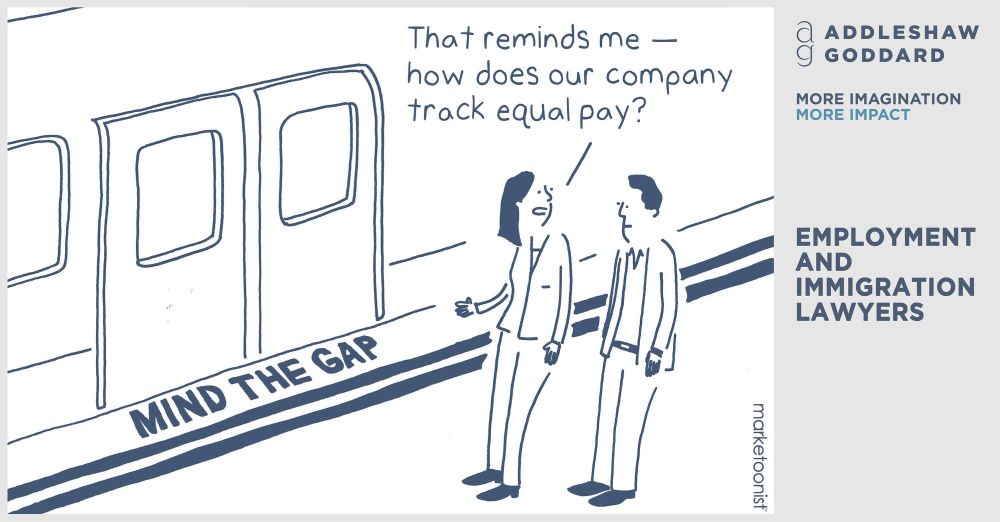- within Employment and HR topic(s)
- with Senior Company Executives, HR and Finance and Tax Executives
- in United States
- with readers working within the Technology, Retail & Leisure and Law Firm industries
This September 2025 edition focuses on equal pay and pay transparency. We look at the complexities of pay equity and the challenges for organisations and introduce our new Pay Transparency Hub on the website. We also take a look at the impact of recent immigration rule changes for employers, the introduction of auto-enrolment pensions in Ireland and share our new Employment Rights Bill tracker which will keep you up to date with developments on the new measures and the timetable for their implementation. We also include our usual round-up of news, our UK and EU horizon scanners and information on forthcoming events.
The journey to achieving equal pay
For over 50 years the concept of "equal pay for equal work" has been recognised across the EU and the UK. International Equal Pay Day on 18 September 2025 creates an opportunity to consider progress to date and the challenges remaining. Despite extensive case law, progress toward equality of opportunity and gender pay parity has been slow.
In recent years, we have seen gender pay reporting obligations on the mean and median pay gap in businesses. Reports are collective which blurs the impact on individuals with no immediate cause of action to remedy the issue. The EU Pay Transparency Directive (to be implemented by June 2026) will radically change the approach of impacted employers who must proactively make available comparative data about pay scales and practices in their workplace.
If you are doing business in the EU, the time is now to start analysing pay data and preparing to engage with employees about any disparity in pay and conditions between comparative co-workers. Whether in the UK or the EU, the increased focus on gender equality across Europe is likely to lead to collective and individual claims for more information about comparative pay and conditions.

Editorial - by Maura Connolly
Equal Pay and Inclusion: Progress Through Small Steps
Achieving true pay equity remains a complex challenge for organisations worldwide. We look at the progress being made and the obstacles ahead for businesses. Find out what it means for business here.
EU Transparency Directive: Which countries have implemented and how to prepare
EU Member States have until 7 June 2026 to transpose the EU Pay Transparency Directive into national law. Our article looks at the key requirements of the Directive, which countries have implemented it so far and what multi-national organisations should be thinking about now. Find out more here.
UK Business Immigration - Investments and Sponsorship: The Impact on Salary Thresholds
Recent updates to the UK Immigration Rules for Skilled Workers could potentially impact participation in employee-wide share schemes and other investment arrangements with a company, at a time when salary thresholds for sponsorship have significantly increased. Read about the latest developments here.
International Update: Auto-enrolment pensions in Ireland set to change
The new Auto-enrolment pension scheme will come into force in Ireland on 1 January 2026. This is a significant development for employers in Ireland who need to understand the complexities of the new arrangements and prepare for the operational challenges in advance of the new year. Find out what it means for employers here.
Upcoming Events:
We are looking forward to our Autumn HR Breakfast seminar at our offices in Manchester on 9 October 2025, London on 14 October 2025 and Leeds on 16 October 2025. The event, Planning for Change: The Road ahead for Employment and Immigration Law, will cover the Government's implementation timetable for the Employment Rights Bill, the latest developments for employment and immigration reform, the implementation of the Pay Transparency Directive across Europe and other significant developments to ensure you are fully prepared for the forthcoming changes. For further details and to register, visit the registration page here.
Our Warsaw employment team together with the Polish Company Lawyers Association are hosting an employment law training webinar: HR priorities at the end of the year on 16 October 2025 covering current issues and the latest developments in Polish employment law. For more information, please contact Magdalena Chorążewicz.
For our Employment and Immigration Training Calendar 2025 listing all our client training events, please visit our website page here.
What else you should know
- As the implementation deadline of 7 June 2026 for the EU Pay Transparency Directive approaches, we have created a Pay Transparency Hub on our website to keep track of the latest developments and to find out what it means for your business. Please visit the Pay Transparency Hub here.
- For all the latest information on employment law reforms and implementation of the Employment Rights Bill, please visit our new Employment Rights Bill Tracker which you can find here.
- An interesting debate in Germany about an employer's obligation to pay sick pay has been prompted by a recent case on sick leave for complications arising from a tattoo. Find out more in When Beauty Hurts the Pay Cheque – New Tattoo Ruling in Germany.
Non-compete clauses in employment contracts:
The Government has confirmed that it has been reviewing the research and work carried out by the previous government on non-compete clauses. It has said that it will consult on options for the reform of non-compete clauses in employment contracts "in due course" but has given no further indication of what its potential proposals for reform in this area might be.
Alongside our UK Employment Horizon Scanner, we now have our new Employment Horizon Scanner for Ireland, France, Germany, Spain and Poland. For all the latest legislative developments, see our latest Horizon Scanners by visiting the resources section of our website page here.
The content of this article is intended to provide a general guide to the subject matter. Specialist advice should be sought about your specific circumstances.


